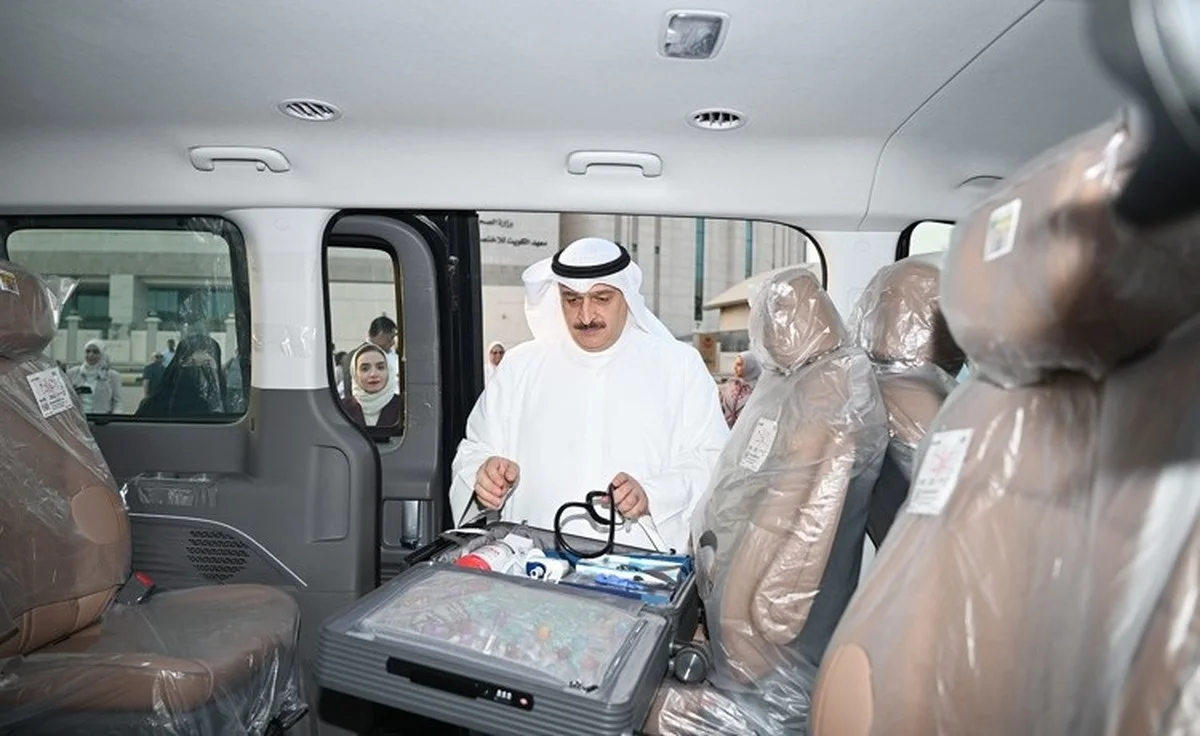23/09/2025
23/09/2025

KUWAIT CITY, Sept 23: Minister of Health Dr. Ahmed Al-Awadhi officially inaugurated the Home Healthcare Service for Children at the Kuwait Institute for Medical Specialization (KIMS), marking a major development in the nation’s healthcare system and a significant step toward achieving the goals of the New Kuwait Vision 2035.
In his remarks during the inauguration, Dr. Al-Awadhi described the launch as a qualitative shift in healthcare delivery, emphasizing that it is more than a traditional treatment program. “This is a fundamental transformation in the philosophy of care,” he said, adding that it brings medical services directly into the homes of Kuwaiti families, allowing children to remain in their familiar environments while receiving high-quality, comprehensive care.
The Minister affirmed that the service targets children under the age of 14, particularly those with chronic illnesses, advanced conditions, or special needs. The Ministry has assigned a multidisciplinary medical team to the program, including physicians, nurses, and specialists in physical therapy, speech therapy, nutrition, psychological support, social services, and palliative care. This holistic approach, he noted, aims to enhance quality of life and ease the burden on families.
Dr. Al-Awadhi also revealed that medical teams carried out more than 872 home visits during the first half of 2025, delivering critical medical and humanitarian support to children across Kuwait. The program has already demonstrated results by reducing hospital stays and waiting lists, as well as improving key health indicators among the children it serves.
“This initiative not only supports the Ministry’s efforts to decentralize healthcare and bring services closer to citizens,” Al-Awadhi said, “but also serves as a model for integrating primary and community care. It exemplifies our commitment to a comprehensive healthcare model based on prevention, treatment, and rehabilitation.”
He concluded by expressing gratitude to the medical, nursing, and administrative staff across all health regions for their dedication. He thanked the political leadership for its continued support of the health sector. He emphasized that such support demonstrates the state’s belief in the importance of investing in human health as a foundation for a productive and prosperous society.
Speaking on behalf of the Ministry, official spokesperson Dr. Abdullah Al-Sanad affirmed that the launch is part of the Ministry’s ongoing efforts to enhance the quality and accessibility of healthcare services for all citizens and residents. He stated that the initiative aligns with the National Development Plan, specifically the pillar of “Health and Well-being for All.”
Al-Sanad detailed that the home healthcare service provides an integrated package of medical care — including preventive, diagnostic, therapeutic, and rehabilitative services — within the comfort and security of the child’s home environment. This approach, he explained, helps reduce anxiety and emotional stress associated with frequent hospital visits, especially for children with complex or long-term medical needs.
He further noted that the service contributes to reducing pressure on emergency and outpatient departments, helps in managing waiting lists, and ensures the delivery of more targeted and efficient care to vulnerable populations.
Target groups include children suffering from heart and metabolic disorders, certain cancerous conditions, those in need of palliative care, and children with mental, physical, or developmental disabilities.
Regarding the implementation mechanism, Al-Sanad explained that eligible cases will be referred by hospitals, after which parents will be contacted and home visits scheduled. A multidisciplinary team — comprising pediatricians, nurses, pharmacists, and therapy technicians — will provide care. Teams also include specialists trained to operate life-support equipment, such as respirators and cardiac monitors. All medical data collected during the visits will be securely documented within the Ministry’s electronic medical records systems.
Meanwhile, Saud Al-Mutairi, a representative of the Islamic Heritage Revival Society, praised the launch, emphasizing the initiative’s humanitarian and social dimensions. He noted that the service is part of a cooperation protocol between the Society and the Ministry of Health. He highlighted the program as the beginning of a sustainable partnership that will continue to support health-related initiatives in the future.


